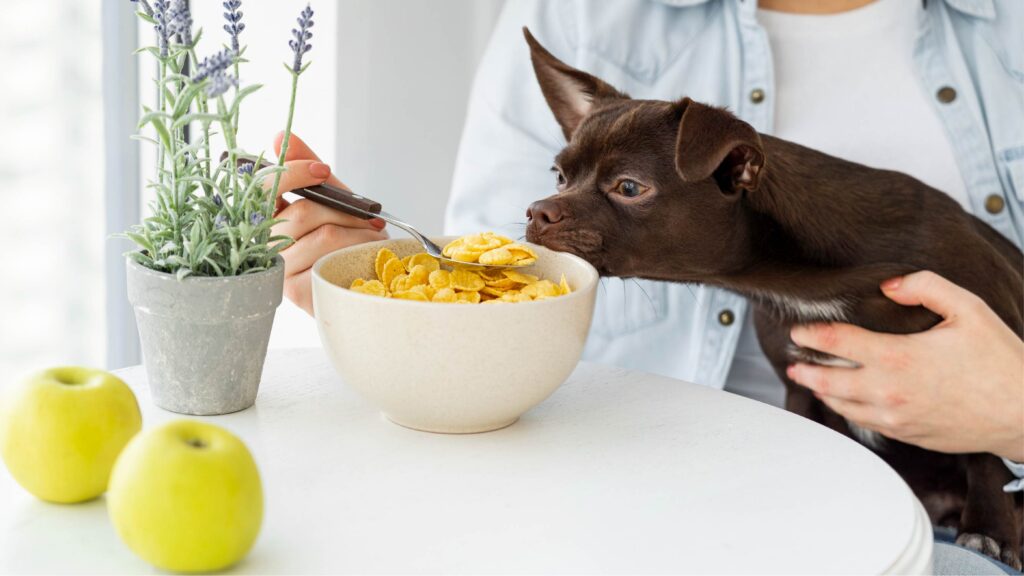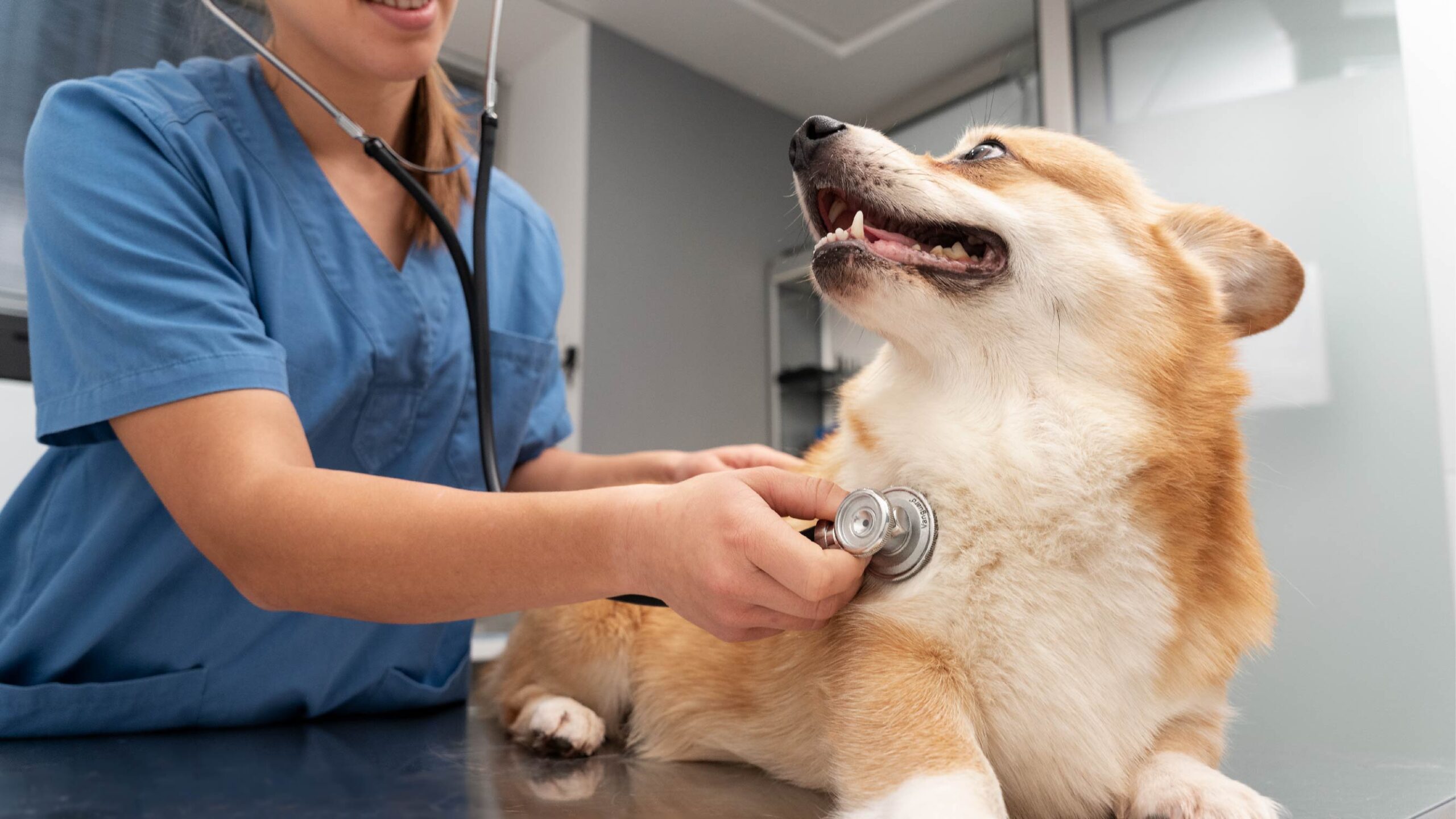Welcome to the world of pet nutrition, where even our fussiest pets demand healthy tummies. Did you know that gastrointestinal issues are incredibly common in pets, with studies suggesting that they affect up to 45% of dogs and 30% of cats at some point in their lives? Pet gut health plays a crucial role in the overall well-being of our furry companions. Just like humans, pets have complex digestive systems that require proper nutrition to thrive. In this article, we’ll explore the essential nutrients necessary for maintaining optimal gut health in pets, ensuring they remain pawsitively nourished and happy.
Understanding Your Pet’s Gut Health

The digestive system of pets, such as dogs, cats, and other animals, is a marvel of complexity. Comprising organs like the stomach, small intestine, and large intestine, it orchestrates the intricate process of breaking down food, extracting nutrients, and expelling waste. At the heart of this system lies the gut microbiome, a rich ecosystem of microorganisms. These microbes aid in digestion, synthesize essential nutrients, regulate immune function, and contribute to overall health and well-being in our beloved pets. This complex ecosystem is finely tuned to each pet’s unique dietary and environmental factors, so, let us now learn more about some important nutrients for your pet’s gut health.
Protein: Protein is essential for pets as it provides the building blocks for muscle growth, repair, and overall health. High-quality sources of protein, such as meat, fish, and eggs, should be included in your pet’s diet.
Fiber: Fiber plays a crucial role in maintaining digestive health in pets by promoting regular bowel movements, preventing constipation, and supporting the growth of beneficial gut bacteria. Fiber-rich foods include fruits, vegetables, and whole grains.
Prebiotics: Prebiotics are non-digestible fibers that serve as food for beneficial gut bacteria, promoting their growth and activity in the digestive tract. Foods rich in prebiotics include chicory root, oats, and bananas.
Probiotics: Probiotics are live beneficial bacteria that help maintain a healthy balance of gut flora and support digestion in pets. Adding probiotic-rich foods like yogurt, kefir, and fermented vegetables to your pet’s diet can help replenish beneficial bacteria.
Vitamins: Vitamins play a crucial role in various physiological functions in pets, including digestion and immune function. Ensure your pet receives adequate amounts of vitamins, such as vitamin A, vitamin D, vitamin E, and the B vitamins.
Minerals: Minerals like calcium, phosphorus, magnesium, and zinc are important for maintaining healthy bones, teeth, and overall metabolic function in pets. So be sure to add mineral-rich foods like meat, fish, dairy, and leafy greens into your pet’s diet.
Water: Proper hydration is vital for maintaining digestive health in pets. Ensure your pet has access to clean, fresh water at all times to support digestion, nutrient absorption, and overall hydration.
Antioxidants: Antioxidants like vitamin C, vitamin E, and selenium help neutralize harmful free radicals and reduce oxidative stress in the body. Include antioxidant-rich foods like berries, spinach, and carrots in your pet’s diet to support their gut health.
Omega-3 Fatty Acids: Omega-3 fatty acids, found in fish oil and certain plant oils, have anti-inflammatory properties and can help reduce inflammation in the gut, improve digestion, and support overall health in pets.
Incorporating Essential Nutrients into Your Pet’s Diet

Now that we understand the importance of essential nutrients for pet gut health, let’s discuss certain techniques via which you can incorporate them into your pet’s diet:
- Choose high-quality commercial pet foods that are formulated to meet your pet’s specific nutritional needs, including protein, fiber, and essential vitamins and minerals.
- Supplement your pet’s diet with fresh fruits and vegetables as treats or meal toppers to provide additional fiber, vitamins, and antioxidants.
- Consider adding prebiotic and probiotic supplements to your pet’s diet, especially if they have digestive issues or are prone to gastrointestinal problems.
- Consult with your veterinarian to develop a customized nutrition plan tailored to your pet’s age, breed, size, and health status.
Ensuring proper nutrition is essential for maintaining optimal gut health in pets. By providing essential nutrients such as protein, fiber, prebiotics, probiotics, and omega-3 fatty acids, you can help support a healthy gut microbiome and overall well-being of your pets. Also, do consult with your veterinarian before making any significant changes to your pet’s diet to ensure they receive the best possible care and nutrition. But remember that in the end, ensuring your pet’s gut health is not just about what they eat, but about the love and care you provide. So, here’s to many more belly rubs, wagging tails, and precious moments together with your furry friend ‘cause a healthier pet is a happier pet!
REFERENCES
1. NIH – https://www.ncbi.nlm.nih.gov/pmc/articles/PMC4774851/
4. PetMD – https://www.petmd.com/dog/nutrition/evr_dg_whats_in_a_balanced_dog_food
5. Tuff Vet Nutrition – https://vetnutrition.tufts.edu/2023/05/what-nutrients-are-essential-for-my-pet/
FAQ’s
Q: What foods help a pet’s gut health?
A: Foods rich in fiber, such as fruits, vegetables, and whole grains, help promote a healthy gut in pets by supporting digestion and maintaining a balanced gut microbiome.
Q: How do you know if your pet has a bad gut?
A: Signs of a bad gut in pets include diarrhea, constipation, vomiting, excessive gas, bloating, and changes in appetite or weight.
Q: Do probiotics help pets’ gut?
A: Yes, probiotics can help support a healthy gut in pets by replenishing beneficial bacteria and promoting digestion and immune function.
Q: What are some signs of unhealthy gut in animals?
A: Signs of an unhealthy gut in animals include diarrhea, constipation, vomiting, bloating, excessive gas, and changes in appetite or weight.
Q: Which fruits are good for pets?
A: Some fruits that are safe and beneficial for pets include apples (without seeds), bananas, blueberries, strawberries, and watermelon (seedless).
Q: Can spicy food upset a pet’s stomach?
A: Yes, spicy food can upset a pet’s stomach and cause gastrointestinal issues such as vomiting, diarrhea, and discomfort.
Q: Is it okay for pets to eat sweet food?
A: While small amounts of sweet food are generally safe for pets, excessive consumption can lead to weight gain, dental issues, and other health problems. It’s best to offer sweet treats in moderation.
